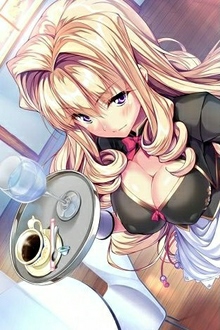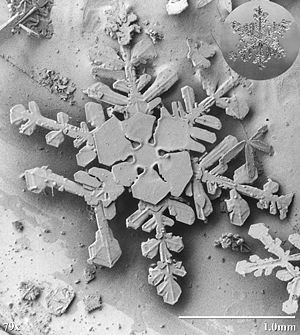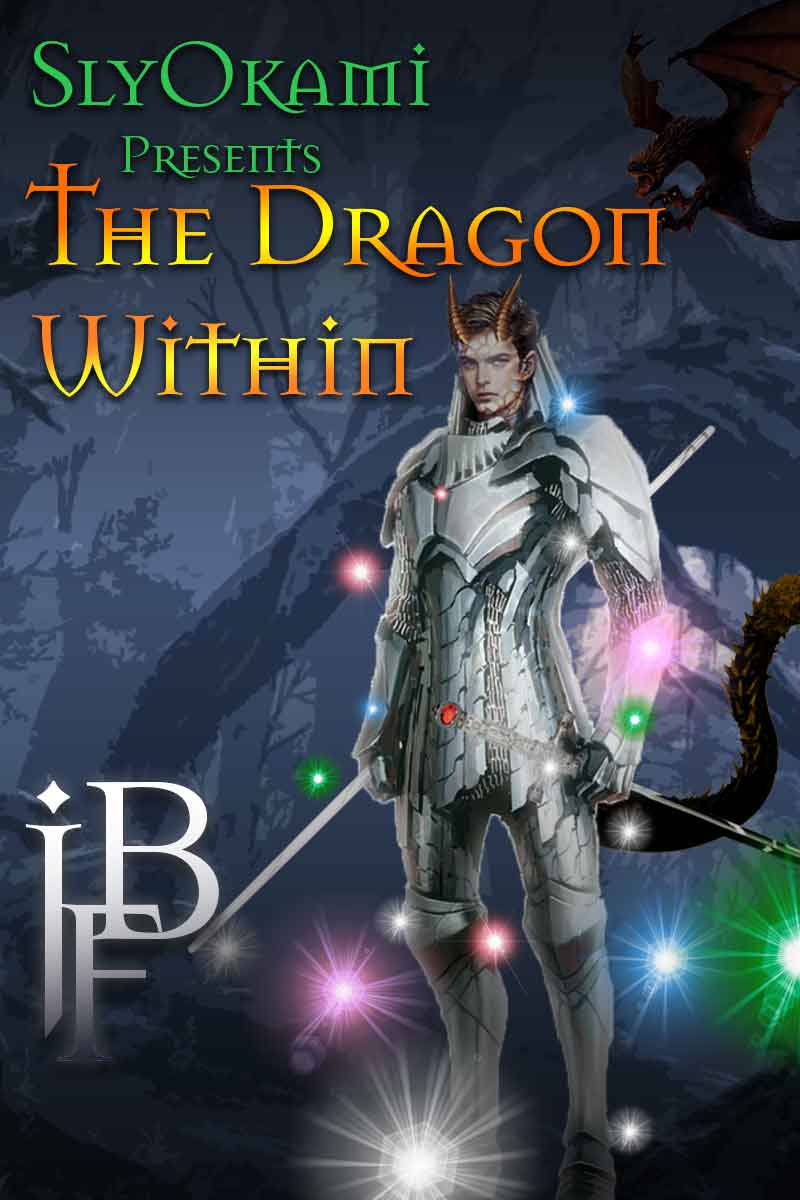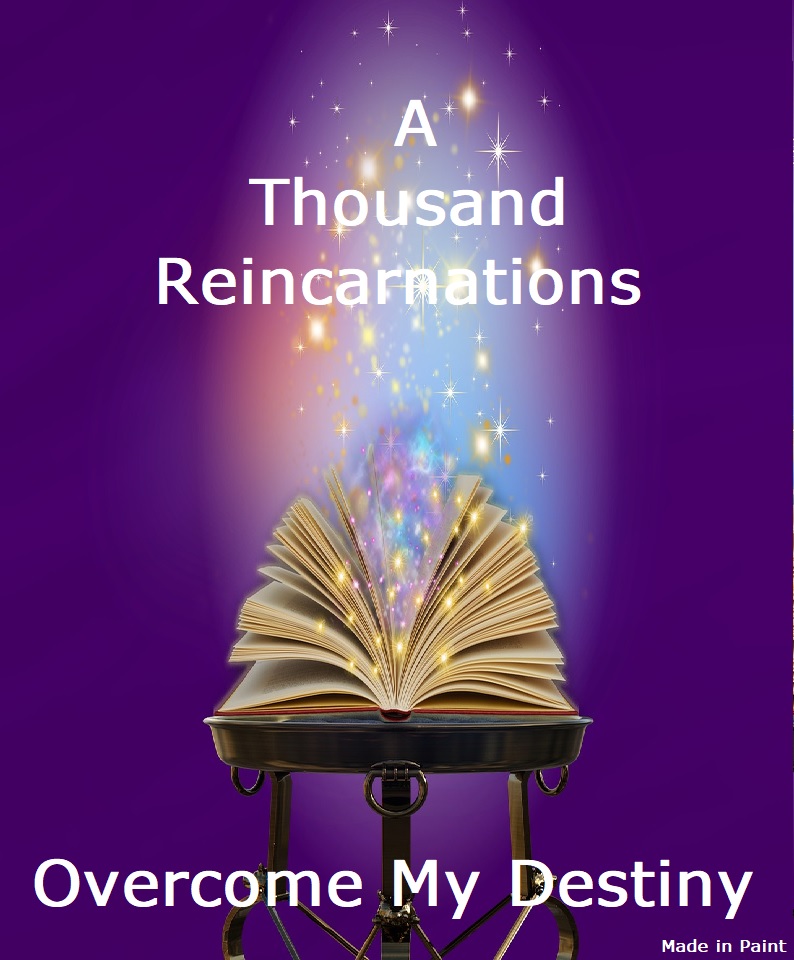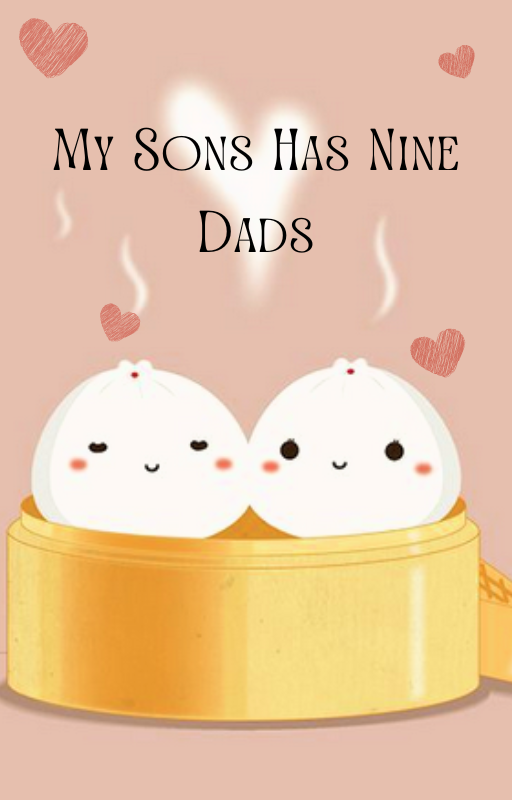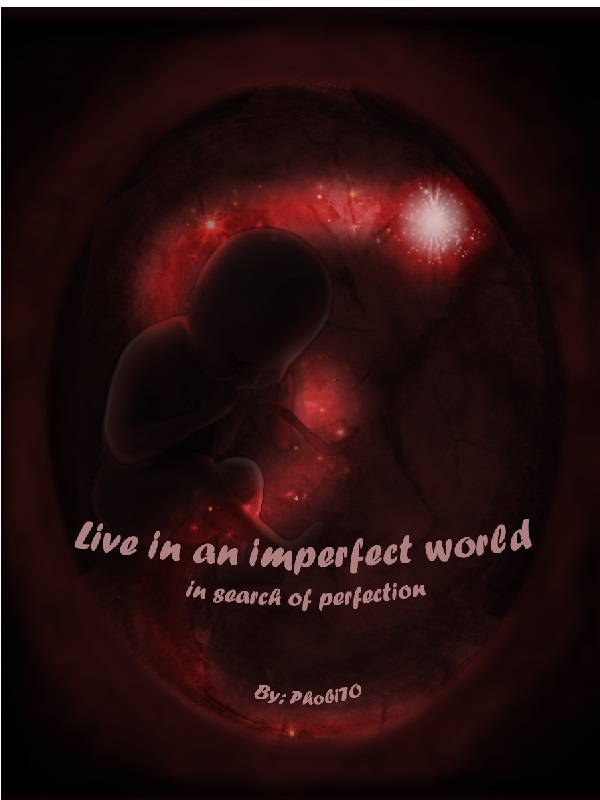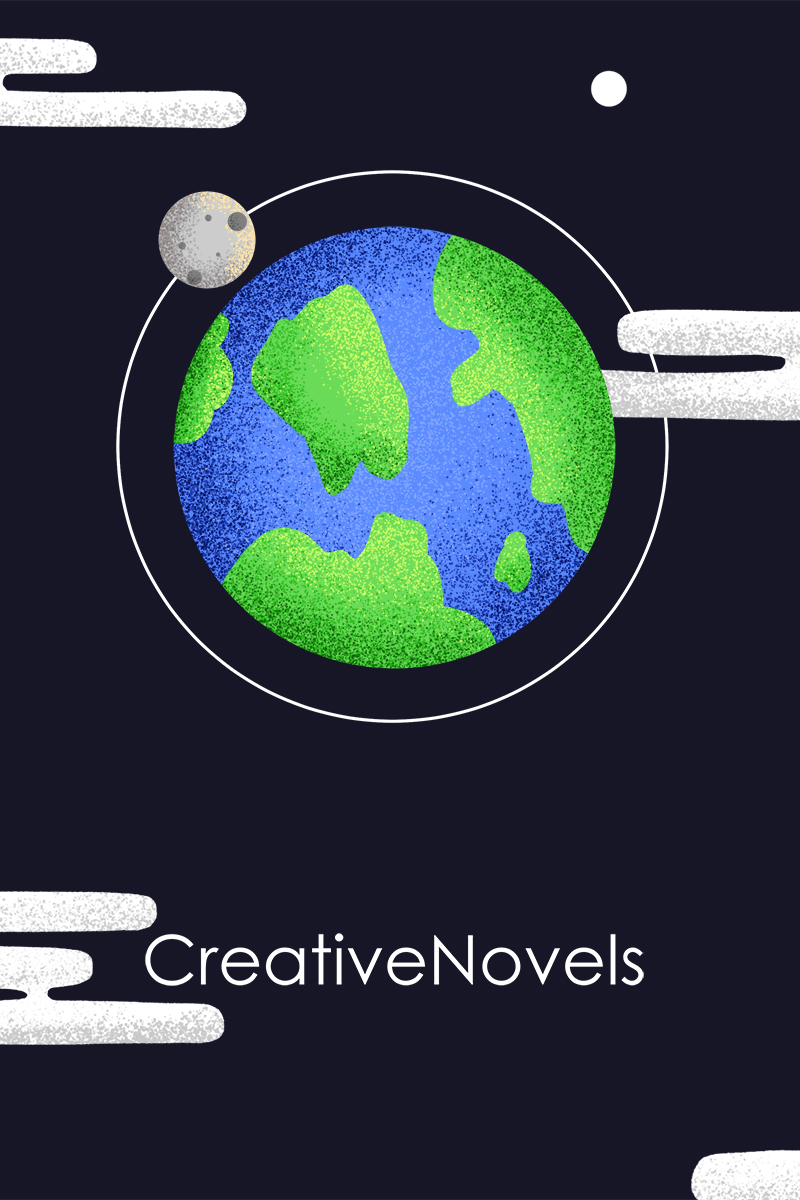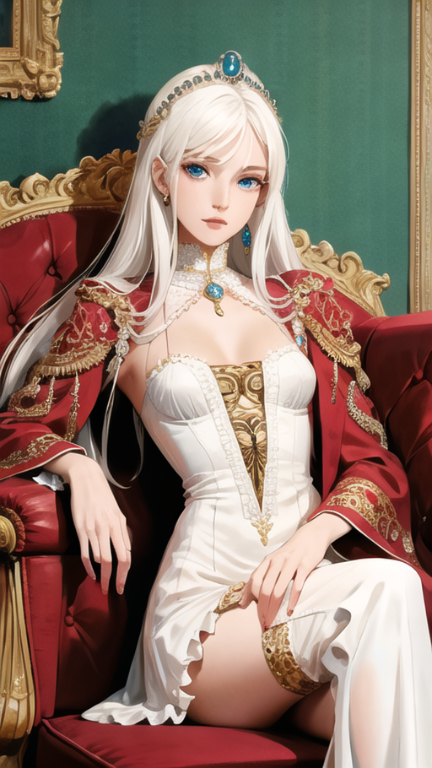Sora couldn’t help but feel a mountain drop on her shoulders. “What do you mean: I’m going to help?”
Her aunt chuckled. “Sora, I told you before, I am only an intellectual construct of your aunt; I hold no real power. I can guide you, but you must be the one to act out the instructions.”
She swallowed nervously, shifting to look at each human in her Core. “I—what if I mess up? I could damage their Core or Intelligence—I couldn’t live with myself if I destroyed their entire being!”
Mary’s brow creased. “Don’t want to proceed if you are uncomfortable doing it.” Everyone else nodded.
Inari’s pleasant smile didn’t falter. “You are mistaken, my niece. You will not be manipulating their Cores, Sora. This is a personal experience; they must unlock their own Core. However, you will be facilitating the test and providing the means by which they can accomplish this.”
“I see,” Ashley hummed. “So, we are the determining factor, not Sora. She is providing the stage, but we must perform.”
Sora pressed her hands against her chest, looking down at the bright floor. “I can’t kill them with this then?”
Inari breathed a long sigh before resting her elbows on the armrests. “Bringing them into your Core was a vast degree more dangerous than what you will be providing. Do not dwell on that though. Let’s return to the topic at hand, now that your fear has been quieted. There is something that Nathan desperately wants to know the answer to that is clouding his thoughts, and that is in regards to me.”
“Eh?” Nathan jumped. “I have a question about you?”
“You do … you wonder about Sora’s aunt and just how powerful she is; after all, absolute power, absolutely corrupts absolutely, correct?”
“Oh,” Ashley leaned forward. “It’s a popular quote. You were talking about the height of the dominance hierarchy; it does seem relevant.”
Nathan growled lowly, folding his arms. “Okay, yeah, it did cross my mind. I mean—you’re super powerful and could solve all our problems, right? You could solve all the problems in just about all the worlds, right?”
“Hmm,” Inari grinned mischievously. “I very well could solve a great number of issues in regards to humanity, but I don’t and won’t. Let’s first discuss your quote, which is laughable if you gave it any form of empirical thought. It is grossly misunderstood. Power doesn’t corrupt; power reveals.”
Mary sucked on her lip for a moment before nodding. “I get it—yeah, that makes a lot more sense.”
“What makes sense?” Nathan shifted uneasily.
“There are many powerful people that do great things,” Inari commented. “Look at your legends and heroes. Are they perfect? No, but they are not corrupt. Power reveals the character hiding underneath. We will discuss a portion of this in the following discussion upon the Yin and the Yang or the persona and the shadow. Let’s discuss what you each will be performing. You’ve each read or watched media that portrayed the dark side of a hero’s personality, and they combat that darker self, gaining mastery.”
Sora shifted nervously as she felt the tension rise in each of their Intelligence. “We’ll be fighting our darker self?” Nation questioned. “I’m a little scared of that aspect—I kind of fear what that might be inside me…”
“That’s a natural reaction,” Mary said with an audible breath. “We each have darkness inside us … everyone is capable of evil, but we are in control of what we choose to release.”
“I wonder about that sometimes…” Ashley muttered.
“Control,” Inari said with a crisp tone. “You mentioned the Yin and the Yang, Ashley. Such a wonderful identification with so much depth. The light and darkness inside us, cycling in balance; not separate, but combined into a whole. Mary, you’ve studied some of Carl Jung, have you not?”
Mary’s eyes lit up. “Oh, yes, I most definitely have. He was a deep psychology genius. There were things that I disagreed with, but it’s Jung; he was an intellectual giant.”
“I have seen his Core, and he was indeed awakened to a great many things; he had a deep imaginative Intelligence that allowed him to identify specific phenomena and predict many events in a prophetic manner. There were many such men throughout human history that are seen with contempt because of their intellectual forethought on observing the currents moving through society; people such as Nietzsche and Dostoevsky.”
“Nietzsche?” Ashley’s brow furrowed. “Wasn’t he the one that said, God is dead?”
“Yes,” Mary shifted in her chair with a light sigh. “Nietzsche’s statement is often taken on a surface level and without context. Essentially, what Nietzsche meant was: God is dead, and we have killed him, and we will never find enough water to wash away the blood. It’s true; when people quote him, they do it in a triumphant manner, but that wasn’t his intent. If you read his writings, Nietzsche thought all hell was going to break loose because of it; he predicted much of what happened in the twentieth century in the eighteen-seventies.”
Inari tilted her head with a wry smile. “What did Nietzsche propose after that statement, Mary?”
She cleared her throat. “What are we going to do to replace him; Nietzsche believed the morality that structured western society was predicated on the fundamental axiom of divinity. He believed the whole corpus of morality was dependant upon that axiom being true, or at least be accepted as true. When that got knocked out in the conflict between science and religion, it had nothing to stand on … then morality becomes entirely questionable. Dostoevsky was writing just about at the same time and concluded that morally, if there’s no god, then basically anything is permitted … morality turns into whatever you can get away with; there’s nothing transcendent about it. That’s what motivated the N***’s into their religious transformation into a morality that was extremely opposed to Christianity … a rise of the state, an alternative to God. World War Two really didn’t end until nineteen-eighty-nine, the war continued, but it was a war everyone was too scared to fight until that point.”
“Some excellent examples, Mary. I’ll ask this of everyone, what is the purpose behind evil? What is it trying to convince you of? This pernicious element that corrodes human consciousness.” When no one answered, she continued. “Life is so unbearably cruel, unjust, random, and tragic, that reality itself would be better off if it never existed at all. Everyone will go through moments with this malevolent element that latches onto your Core. It is not easy to rid yourself of this miasma; it takes real purpose, meaning, to accomplish that, and if you cannot find meaning, then you will drown in darkness. Humanity has struggled with this subtle presence since the beginning; yes, Mary, humanity didn’t really vote on it as a whole until nineteen-eighty-nine, when nuclear crisis reached its zenith. There were moments during that war that the whole world was ten seconds from destruction.”
Nathan looked down sullenly. “Is it worth the pain?” Sora was a little shocked to hear that from him. Does he really think life is that bad … he does have a lot of turmoil in his Core, now that I look. What’s going on with his thoughts … family?
Inari smiled. “It depends how you live; however, just knowing the answer doesn’t mean you know how to live. It takes a bedrock of ethics to stand upon, and not many people are willing to uproot their inflated ego that they can intellectually navigate the moral sphere alone. Ethics is grounded in eons of religious evolution and throwing that out of the window spells disaster, and thus births the Marxists. There’s only evidence of Marxism being a murderous philosophy, nothing else. As Mary stated, the death of God produces Nihilism; no foundation under your feet to buttress your moral claims, what is life worth in the face of tragedy; something, needs to replace it … the state, opening the way for people like Josef Stalin and Mao Zedong or perhaps even the Vulpes Council. We can discuss more about this Realm in time. It’s important to get your ideas right because people die if they are not. Those are the options; worship the state or worship nothing, Nihilism.”
Mary sighed. “Yes, I think we understand. A postmodern response, which is Nihilistic, and the fascist response, which is state worship, and both are terrible.”
“Indeed, we are getting into a state of philosophy that Wendy would start becoming confused about. Jung was trying to bring the primordial imagination back into the world, the understanding of ethics that undergird mythology. Let’s move to some more mythology then; let’s look at the ethical understanding of the Phoenix and unite that to the Jung idea of integrating your shadow. This is important in regards to your Core.”
Mary sat a little straighter. “Those are polar opposite ideas; how can they be brought into harmony?”
“Explain why they are opposites,” Inari instructed.
Hmm,” Mary looked up into the blackness. “The Phoenix … there are times in your life where you have to identify in yourself flaws or insufficiencies that you must have a controlled burn, purging or discarding a part of yourself that doesn’t fit, like the rebirth of the Phoenix. Jung’s idea of incorporating the shadow plays out like … as you get older, you mature by reincorporating things about yourself that you lost when you were younger—integrate your shadow or things that you’ve been rejecting about yourself. One discards the flaws, while the other incorporates them.”
A playful smile curved her lips. “In Jung’s work on Alchemy, what was his explanation of the prime alchemical dictum?”
Ashley’s eyes widened with surprise. “I know this one! I remember a lecture back in my third year at University. I don’t remember the term, but it meant to dissolve and integrate. So, connecting the Phoenix with dissolve and the shadow with integrate?”
“Hmm,” Inari’s orange irises shifted to Wendy. “Imagine you have an angry drunk as a mother.” Wendy stiffened at her words, Sora reached out and grabbed her hand to try and comfort her. “Your mother is not very controlled in her aggression and verbally abuses you while dictating chores as some arbitrary punishment. Mary, what’s the normal response to that?”
“You build a moral structure that’s a part of your personality; I’ll never drink like my mother, or I’ll never be aggressive like her.”
“Is stripping the possibility of physical or verbal aggression of any ethical utility a good thing, Mary?”
Mary shook her head. “No … it’s not a good thing.”
“No, it is not,” Inari agreed. “So, you burn that negative structure of your mother’s abuse, shedding it like a snake, but you still need to incorporate your aggression, why?”
“Ah,” Mary slapped her fist. “It’s associated in some degree with Nietzsche’s idea that morality is cowardice.”
“Indeed,” Inari praised. “One of Nietzsche’s most trenchant critiques of traditional morality is that most of what passes for morality is not that at all, but cowardice; it’s not that I’m a good person and I don’t want to hurt or steal from you, it’s that I’m afraid to hurt or steal from you because of consequences. Because I don’t want to admit that I’m afraid to hurt or steal from you, I say I’m moral, and I can mask my fear and cowardice as morality. Once you can perceive the human Core and the intent of the Intelligence, then it becomes all too apparent that this pervades many human interactions. Being harmless and being moral is by no means the same thing. A good branch from this is to address Sigmund Freud; what was Freud’s expertise, Mary?”
She swallowed, brow furrowed as she tried to puzzle out Inari’s connection, which didn’t take her long. “He was—ah, okay. Freud concentrated on aggression and sexuality. Probably the two most difficult parts of our personality to integrate.”
“Freud was explaining, hyper-simplified morality stops you from tapping into deeper recesses of your psyche; primarily because they are primal forces—it’s not surprising you don’t want anything to do with them, avoid situations where they may manifest. However, by denying the worst in yourself or repressing it, you prevent the possibility of the best. Nobody can be a good person without integrating their potential for aggression. Why is that, Nathan?”
Nathan pressed his hands against his forehead. “Give me a second to think about that—nobody can be a good person without integrating their potential for aggression…” He closed his eyes and leaned forward; Sora could sense his mind working frantically at the problem that Mary had already discovered. She squeezed Wendy’s hand with a concerned smile. She returned the smile, letting her know she was alright.
“Wait,” Nathan sat up, eyes wide. “You can’t say no without aggression, can you?”
“Precisely,” Mary clapped. “You know, it took me reading Freud to actually understand that. I’m impressed you came up with it on your own.”
Inari nodded. “If you really mean no, then what you’re saying is: There isn’t anything you can do to me that will make me change my mind, or conversely, it means, I will play for higher stakes than you will. And unless you have your aggression integrated, there isn’t a chance you can say that, not even a glimmer. If you did, without aggression, no one would take you seriously—they’d know it’s just a persona. Jung did excellent work identifying what he termed, the shadow, which is represented in many of the mythologies where the hero must face himself.
“Jung was very interested in the workings and concept of evil; what do you do with the part of you that is aggressive and potentially malevolent? Do you crush it?”
“That’s the superego response!” Mary chimed in.
“Yes, the response to put it behind you. However, is that even a possibility? Or—do you admit its existence and bring it into the game? For Freud, morality was superego clamping down on the Id, and they were fundamentally opposed.” A smile touched her lips. “Both Jung and Jean Piaget had a different idea, Mary?”
Mary breathed out a heavy sigh. “Man, going between Jung, Freud, Nietzsche, Dostoevsky, and now Piaget … you’re making my head spin, Inari. Okay, both Jung and Piaget … they’d say to Freud—no, no, you don’t shut the bad guys down, you invite them out to play…”
Inari picked up where she left off. “It will come in a moment; imagine you are an aggressive hockey player … that’s disciplined aggression. That gives you access to a source of energy you wouldn’t otherwise have. In regards to sexuality; unbridled promiscuity does not constitute a virtue, but neither does unavoidable virginity—in fact, personally, I think that’s worse.” She chuckled. “Because that masks itself with virtue. The definition of a genuinely moral person: You should be able to do things you wouldn’t do; they could do it, but they don’t, and that’s not cowardice. The Phoenix, you burn off the things that get in the way of that integration.”
Wendy groaned. “Do you have an example that I can follow this with?”
“I second that!” Ashley sighed.
“Of course,” Inari chuckled. “This was a bit for Nathan, but mostly to help condense a few ideas for Mary. Let’s connect this to another Disney film that you’re all aware of, Pinocchio. Geppetto, the father figure of Pinocchio, similar to how we discussed Osiris and Horus—Geppetto is stuck in the belly of the whale. He’s so caught in his assumptions that he can’t escape, sound familiar? Trapped in the underworld, chaos, willfully blind. Pinocchio, Horus, represents the new force. Wendy, what does Geppetto confuse Pinocchio with when he tries to rescue him?”
“Umm, he thinks Pinocchio is a … I forgot,” Sora felt Inari’s Intelligence reach through her and touch Wendy’s Core. “No, a fish! It was a fish! He wants something to eat because he’s starving!” Wait, she doesn’t have any power, but she can use me as a conduit … oh, I see what she’s getting at. Maybe…
“Yes, but Pinocchio is better than something to eat, right?”
“Rescue,” Ashley muttered.
“Indeed. And what does Pinocchio, this new force, come up with to save them?”
Sora felt Inari’s influence touch Nathan through her. “Oh—man, I can’t believe how long ago I saw it,” Nathan said, eyes lighting up. “Pinocchio wanted to start a fire to smoke themselves out, but Geppetto freaked out because he didn’t want to burn up the furniture.”
“I see,” Mary muttered. “They don’t need the furniture if they’re getting out of the whale … Geppetto and Osiris, they’re old, that’s the rigid structure of our ethical walls.”
Ashley hummed. “The old year that has to die off before the new year can be born—a forest fire that allows for new growth.”
Inari took on a pleasant smile. “You might think, if I burn it up there’d be nothing left, but that isn’t true, is it?”
“You’re right,” Ashley jumped in. “If it’s deadwood then you have room for new growth.”
“Yes, that’s the snake that sheds its skin and transforms itself—the death and resurrection from a psychological perspective. Many people accomplish this to a lesser degree, the low hanging fruit or foolish things that if you stopped doing, would improve your life. I’m talking about something much, much deeper, but also requires the burning of those low hanging fruit as well. This has to do with pride; people tend to be prideful of who they are, which is a bad idea because that puts you in a sense of comfort.
“The idea that you’ve reached a state of perfection is a terrible idea because it stops you from becoming who you could be; if you are proud of what you are, then you cannot let that burn in the Phoenix’s flames and integrate the unknown and dangerous elements of your shadow. You become your own parody; you don’t want this, you want to be continually progressing away from your previous self. Here we get to the conclusion. Are you the yin or the yang; the order or the chaos; the persona or the shadow—or, are you the process that mediates between them.”
“Wow,” Mary breathed out slowly. “That all connects.”
Inari’s patient expression didn’t falter as she finished. “Unlocking your Core; you are the thing that transforms, and that is the right attitude for a human being. That is what you are; you are the thing that voluntarily confronts chaos and transforms—you could say, your deepest biological essence. So, you can let things go, if you know more things are to come.”
Author Note: Check out some of my other works if you like A Tail’s Misfortune!
Site Store: Check out the website’s new store to support the site.
^_^7


